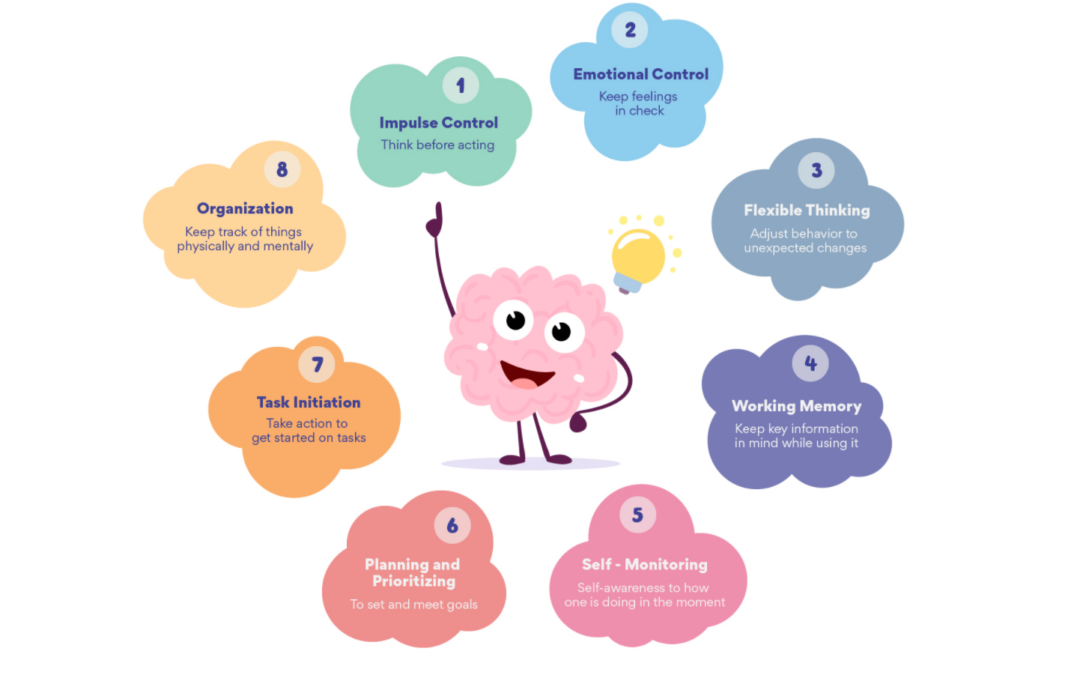By: Eve Gottesman, MSW
At some point in our lives, we have all learned what it feels like to multitask. Although multitasking can be stressful, we have the ability to control what needs to be completed and get it done in a timely manner. Well, this is all thanks to our executive functioning! Executive functioning is a set of neural mechanisms that are responsible for cueing, directing and coordinating multiple aspects of perception, emotion, cognition and action. In simpler terms, think of executive function as the conductor of the brain. These skills allow us to manage lots of information at once, while avoiding distractions.
Executive function and self- regulation are key for children’s lifetime performance. From a young age, it is important for a
child to learn what it is like to work effectively with others, while being able to manage any distractions. With this being said, these are skills that can be taught. The more one practices using these skills, the better they will become. These are also skills that we can continue to work on as we age. In females, executive function is not fully developed until 21-22 years old. In males, executive function is fully developed at 29-30 years old.
ADHD and Executive Function have many similarities, which can be confusing to understand. However, there is one big difference between the two. ADHD is a diagnosis, whereas executive function disorders are not. Children who are diagnosed with ADHD struggle with executive functioning skills, but this does not necessarily mean that a child who struggles with these skills will be diagnosed with ADHD.
So, how can executive function be taught? There are a number of ways in which we can help children learn and grow.
- Surprise cards. This allows for the child to prepare for any upcoming changes in their schedule.
- Social stories. Social stories are used as a narrative to discuss a child’s success in performing a certain task or learning a new skill.
- Provide visual support. With executive function deficits, visual is a strength, whereas auditory is not.
- Establish a routine. Sticking to a routine allows for a better understanding of each day, while giving children a goal to stick to everyday.
- Keychain rules. Keychain rules are a list of short statements of desired expectations that emphasize the importance of rules and structure.
When one is able to use their executive function skills, they will have more control over their problem solving skills and abilities, be able to follow a plan from beginning to end, use past knowledge when planning for novel situations and seeing a future goal. These skills are not easy to acquire, but with the right amount of practice, one can see major improvements.

